High blood pressure, or hypertension, is a common condition in which the force of the blood against your artery walls is consistently too high. Over time, this can damage the heart and blood vessels, leading to serious health complications like heart disease, stroke, and kidney failure. Often called the “silent killer,” it typically has no symptoms in its early stages, so regular monitoring is crucial.
In Ayurveda, high blood pressure is not described as a single disease but is understood as a systemic imbalance. It is often correlated with two conditions: Rakta Gata Vata and Rakta Pradara.
The primary cause is the vitiation of Vata and Pitta doshas, often fueled by a weakened digestive fire (Agni) and the accumulation of toxins (Ama).


Consuming salty, spicy, and sour foods; excessive caffeine and alcohol; and processed foods can increase Pitta and Vata.

Excessive mental and emotional stress, especially anger and anxiety, can lead to the vitiation of both Vata and Pitta, directly impacting the cardiovascular system.

A lack of physical activity weakens the metabolic fire and leads to the accumulation of Ama and excess weight, straining the heart.

Headache
(Shiro Vedana)
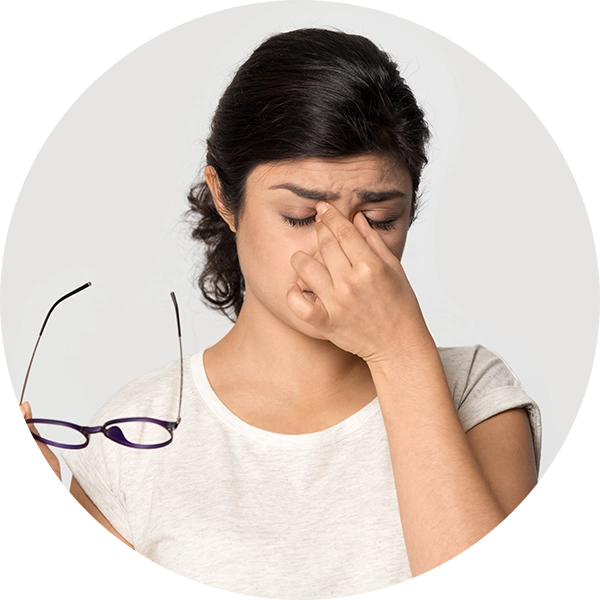
Eye Strain
(Chakshu Pida)
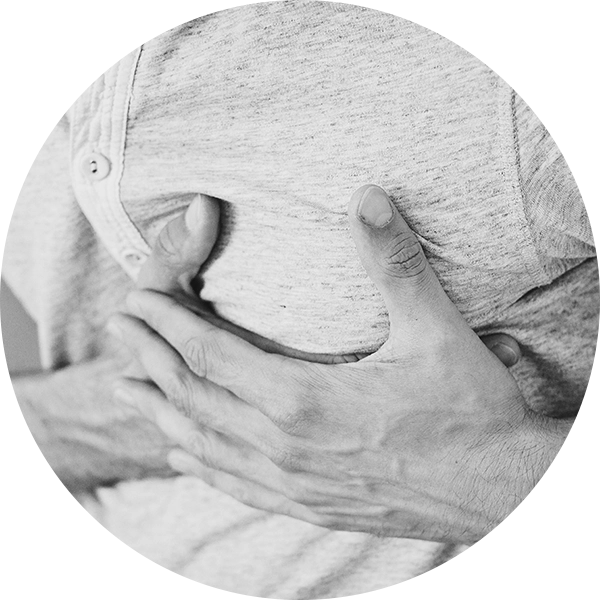
Palpitations
(Hridaya Vyapta)
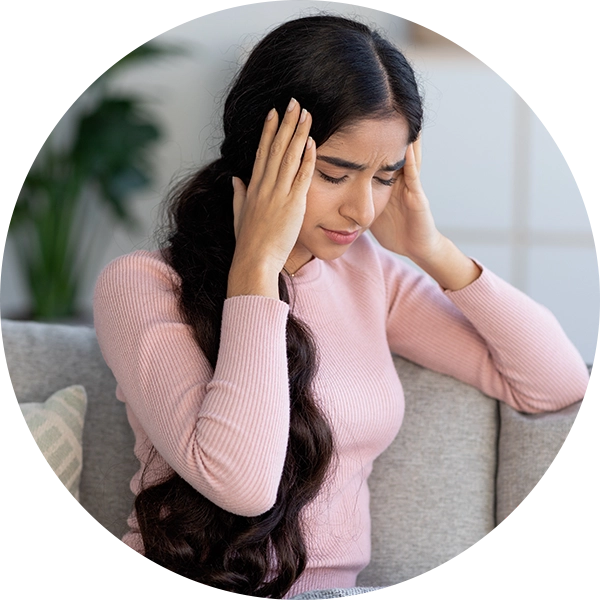
Dizziness
(Bhrama)
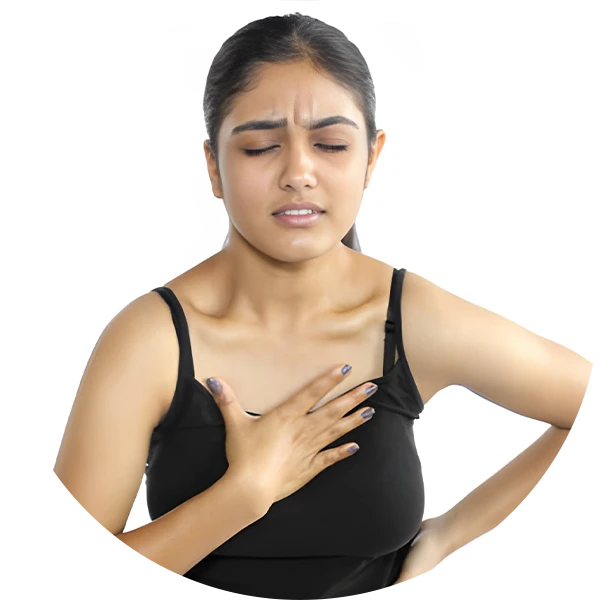
Shortness of Breath
(Kshudram Shvasa)
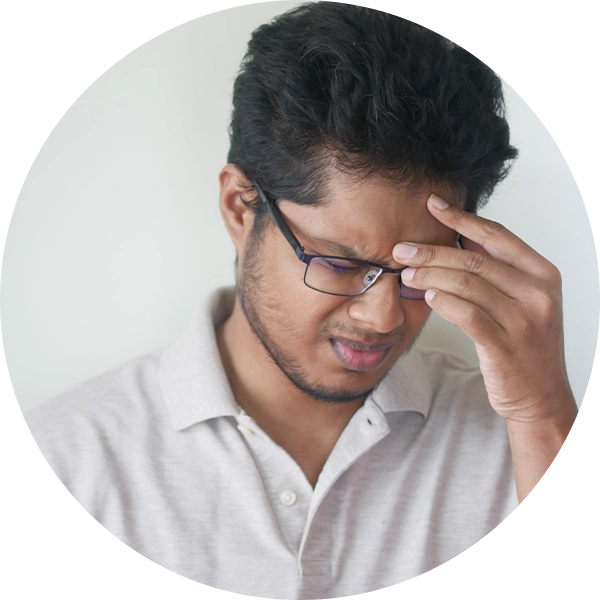
Fatigue
(Gatrani Daurbalyam)



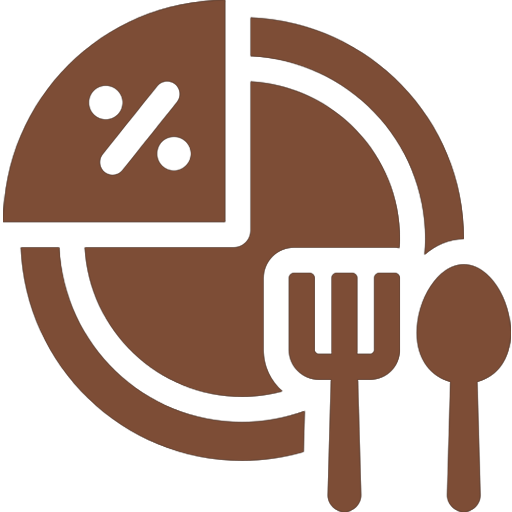


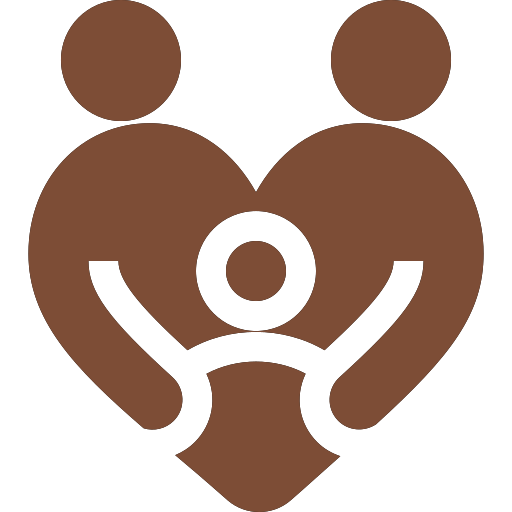

A sedentary life and a diet high in Kapha and Pitta-aggravating foods weaken the digestive fire (Agni).
The weakened Agni and improper habits lead to the vitiation of Vata and Pitta doshas.
Undigested food and toxins (Ama) accumulate and circulate in the body.
The Ama and vitiated doshas block the channels (Srotas) that carry blood, particularly the smaller vessels, leading to increased pressure.
The vitiated doshas and Ama affect the quality of the blood itself, leading to increased heat and toxicity.
The combination of channel obstruction, blood vitiation, and increased force of Vata leads to the manifestation of high blood pressure.
We begin with a detailed evaluation combining modern diagnostic tools with Ayurvedic assessments such as Prakriti (body constitution), Vikriti (current imbalance), dosha mapping, and lifestyle review. This dual lens helps us see the full picture of your health, beyond just the symptoms.
Ayurveda teaches us that diseases are born from underlying imbalances; not just isolated issues. We carefully study dietary habits, digestion (Agni), toxin accumulation (Ama), stress, and daily routines to uncover the true root cause of your condition.
No two patients are alike. Your treatment is tailored to your unique body type (Vata, Pitta, Kapha), disease stage, and co-existing conditions. This ensures maximum effectiveness and safety, while restoring balance at the deepest level.
Healing isn’t one-dimensional. Based on your needs, we combine:
This integrated approach ensures that body, mind, and spirit heal together.
Health doesn’t end with treatment. We equip you with home remedies, seasonal routines, lifestyle practices, and follow-up support to prevent relapse and help you sustain wellness for the long term.
Ayurvedic treatment for high blood pressure is a holistic approach focused on calming the mind, balancing the doshas, and cleansing the blood and circulatory system.

Treatment focuses on calming the nervous system. Shirodhara (warm oil poured on the forehead) and gentle Abhyanga (oil massage) are highly effective.

Treatment focuses on cooling the system and reducing inflammation. Virechana (therapeutic purgation) helps to eliminate excess Pitta.

Treatment focuses on improving metabolism and reducing Ama. Udwartana (herbal powder massage) and a dry, stimulating diet are beneficial.

Foods that are light, easy to digest, and rich in natural bitter and astringent tastes. Include fresh vegetables, whole grains, and fruits. Use spices like turmeric, cumin, and coriander.

Salty, spicy, and sour foods. Strictly limit processed foods, red meat, excessive oil, and caffeine.
| Do's | Don'ts |
|---|---|
Maintain a Routine: Regular sleep and meal times are crucial. | Avoid a Sedentary Lifestyle: Regular exercise is vital. |
Manage Stress: Practice yoga, meditation, and pranayama daily. | Limit Salt Intake: Reduce consumption of salty foods and processed snacks. |
Stay Hydrated: Drink warm water or herbal teas throughout the day. | Avoid Smoking and Alcohol: These severely impact heart health. |
Chew Food Thoroughly: Aids digestion and prevents Ama formation. | Don’t Suppress Emotions: Expressing feelings helps calm the mind and body. |
Poses like Balasana (Child’s Pose) and Paschimottanasana (Seated Forward Bend) are excellent for calming the nervous system.
Bhramari (Humming Bee Breath) and Nadi Shodhana (Alternate Nostril Breathing) are highly effective for reducing stress and anxiety. .
Experience holistic healing and rejuvenation with Shree Ayurvedic, where traditional wisdom meets modern care for your health and wellness.





© 2025 Shree Ayurvedics. All Rights Reserved. Designed by Bee High Media